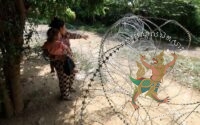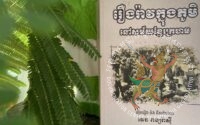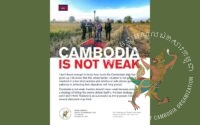Nepali Civil Peace Service’s Delegates Visit QML and DC-Cam
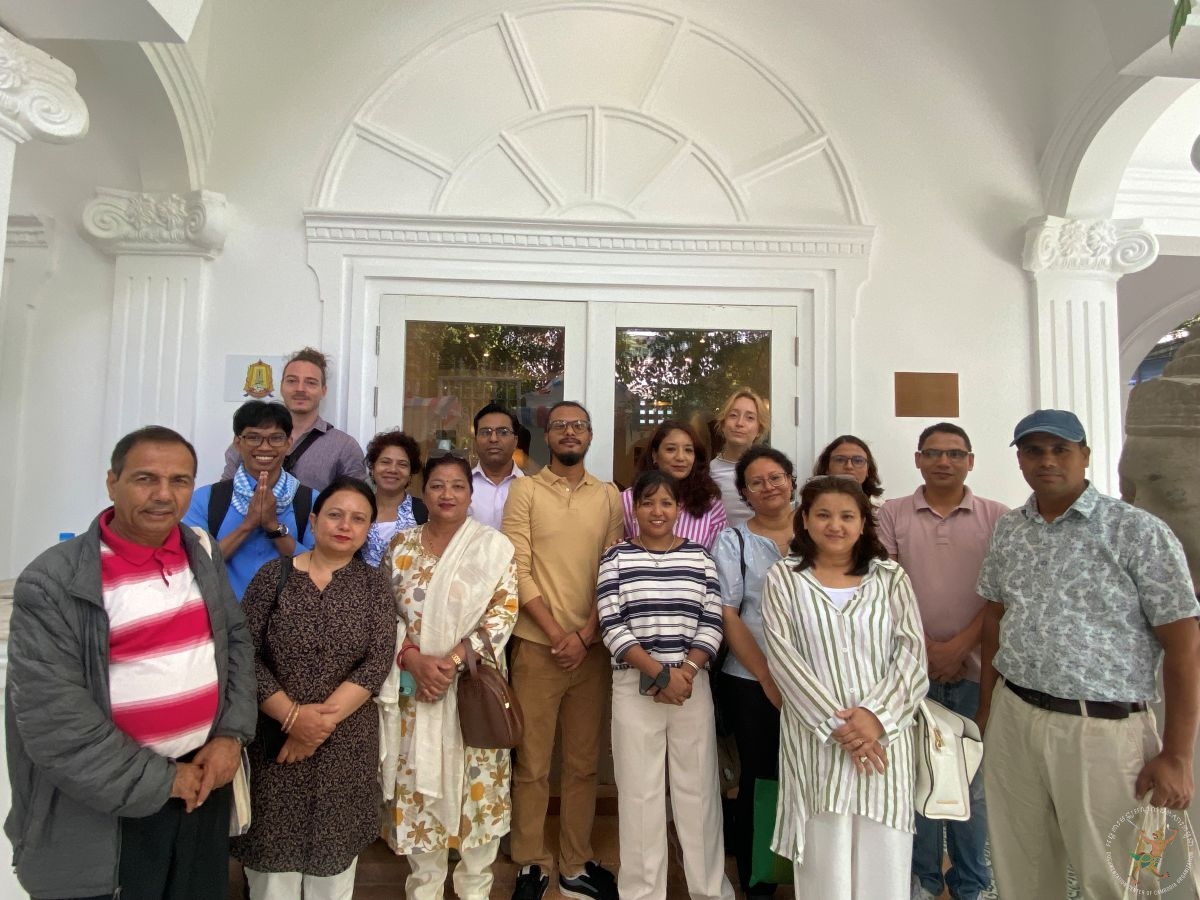
On August 13, 2025, 14 peacebuilders from KURVE Wustrow’s Civil Peace Service (CPS) program, Nepal, visited the Documentation Center of Cambodia (DC-Cam) to learn about Cambodia’s experience with memorialization, transitional justice, and human rights. The visit took place, between 10:00 am and 12 pm, provided a learning opportunity for the delegation to observe Cambodia’s process of confronting its traumatic past, a highly topical issue for their current work in Nepal.
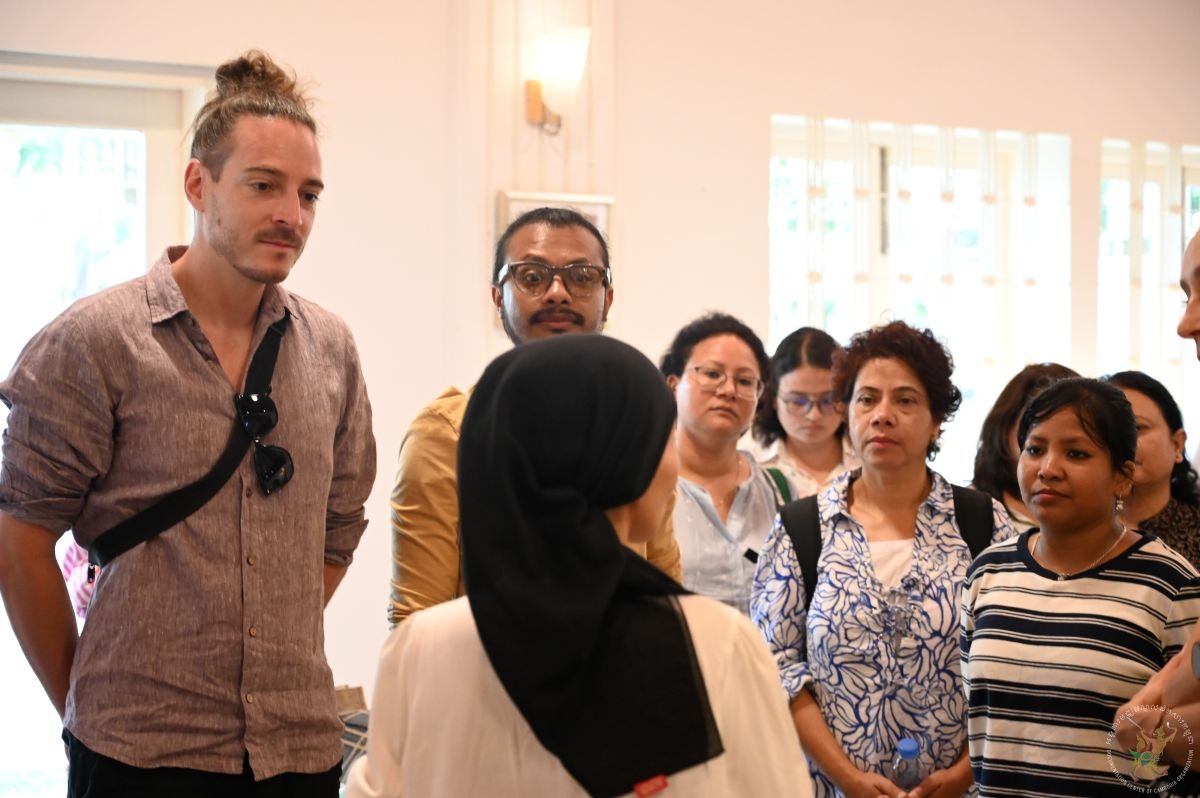
Civil Peace Service (CPS) Programme of KURVE Wustrow: The CPS is a peace and violence prevention programme for areas of conflict. CPS is a program of KURVE Wustrow, a German non-governmental organization that was founded in 1980. CPS provides assistance to local partner organizations in other nations, such as Nepal, to be more efficient in peacebuilding, conflict transformation, and human rights. Their activities were based on the philosophy of non-violence and dedicated to establishing a culture of peace.
The delegation was welcomed by Ms. Farina So, the Deputy Director of DC-Cam. The visit started of with a brief tour to the facilities of the Queen Mother Library and DC-Cam, with a brief narrative of DC-Cam’s missions and projects in the past 30 years.
The Documentation Center of Cambodia (DC-Cam) was established in 1995 and is an impartial research center dedicated to recording the history of the Khmer Rouge regime. It seeks to remember the genocide and pursue justice and reconciliation for Cambodia. DC-Cam’s extensive archive of documents, photographs, and witness testimonies has assisted in making the ECCC easier to support and has given it resources to inform future generations about the past.
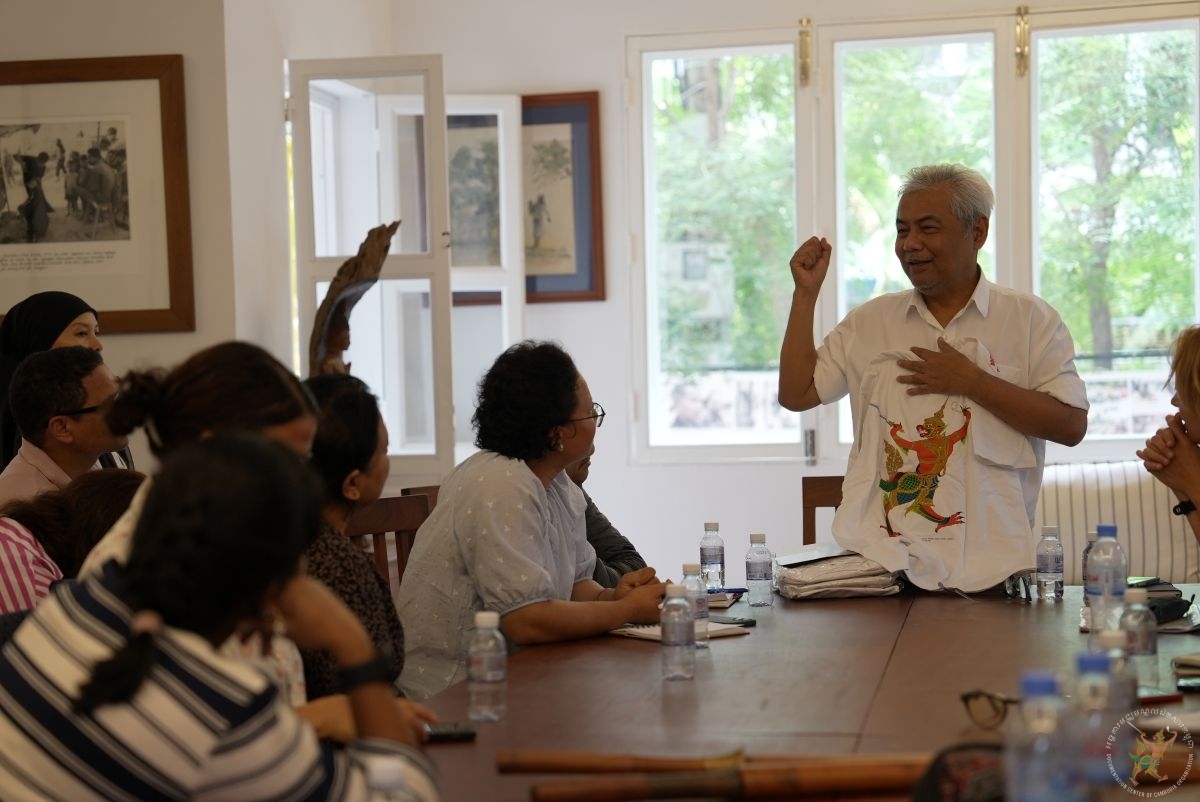
Following the tour, the group convened at DC-Cam’s headquarters to further discuss the delegation’s interest with Mr. Youk Chhang, Director of DC-Cam. Memorialization and how the past had been handled were the topics under discussion, with the Nepali delegates themselves being part of the very same tradition in their own country. They were keenly interested in knowing how Cambodia had memorialized the victims of the Khmer Rouge regime, and how they had also managed to find a path towards peace and reconciliation.
Some significant questions arose during the discussion. One among the most interesting questions was “Why document?” Youk answered: “To understand atrocities, we must understand what before now by collecting paper documents, photo documents, for primary resources.” He added: “Primary resource is unchangeable. And a piece of paper became significant.” Mr. Youk Chhang also highlighted three main challenges facing DC-Cam: political, network and resources.
The visit also touched upon transitional justice, human rights work, and restorative justice. All three are central to the CPS program in Nepal, where the country continues to deal with the impacts of its own civil conflict. The visitors were curious about how Cambodia’s experience, most specifically that of the Khmer Rouge Tribunal (officially the Extraordinary Chambers in the Courts of Cambodia, or ECCC), could be translated to their programming and approaches.
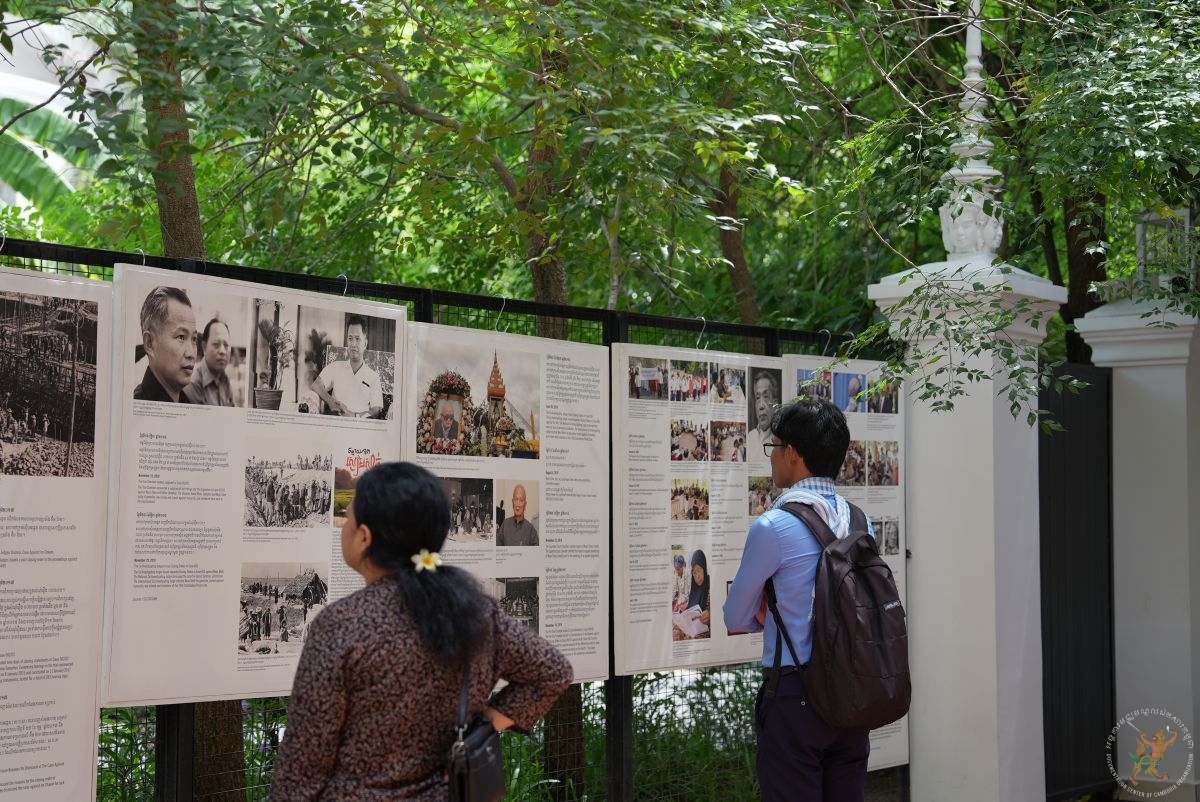
One of the highlights of the tour was a visit to a 16-panel exhibit that chronicled the 16-year trial process of the ECCC, from 2006 until 2022. The exhibit was a step-by-step visual record of the work of the court, a tangible manifestation of a transitional justice system at work.
The visit concluded with a renewed sense of purpose for the Nepali delegates, who expressed their gratitude for the insights gained. They left with a deeper understanding of the complexities and possibilities of dealing with a difficult past and a commitment to applying these lessons to their peacebuilding efforts in Nepal.
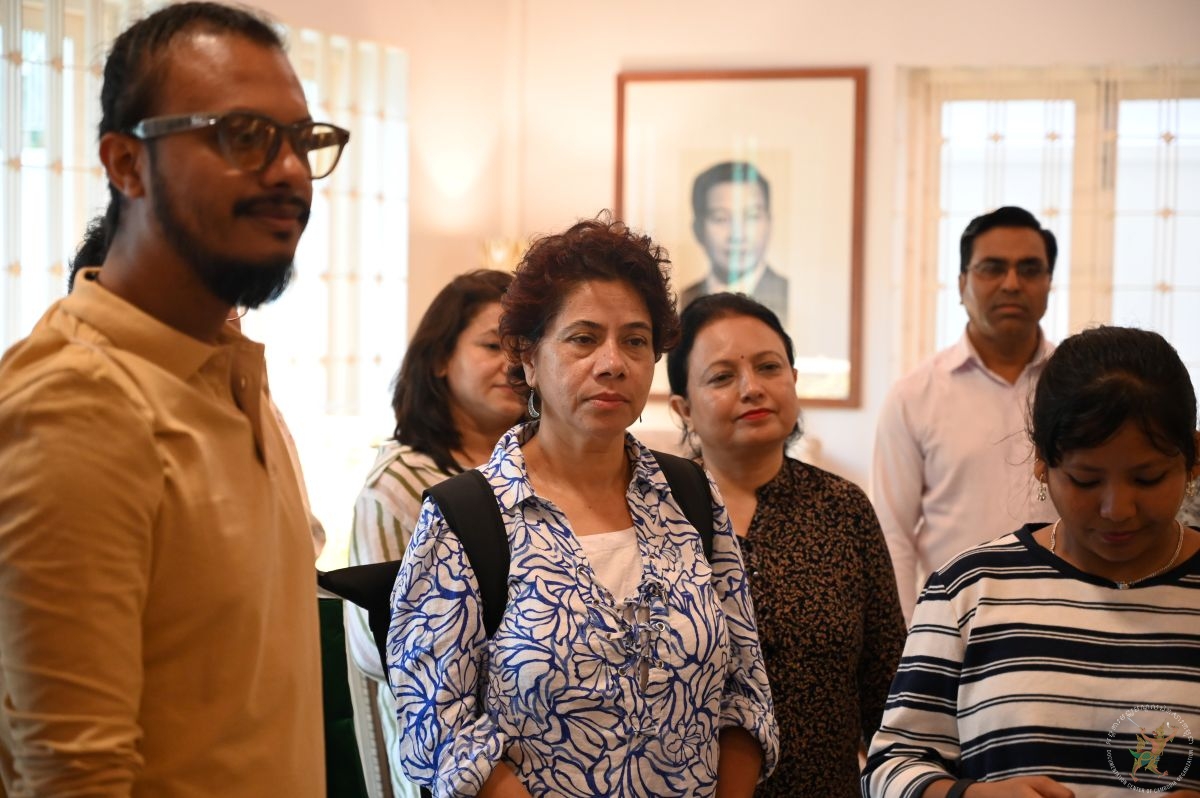
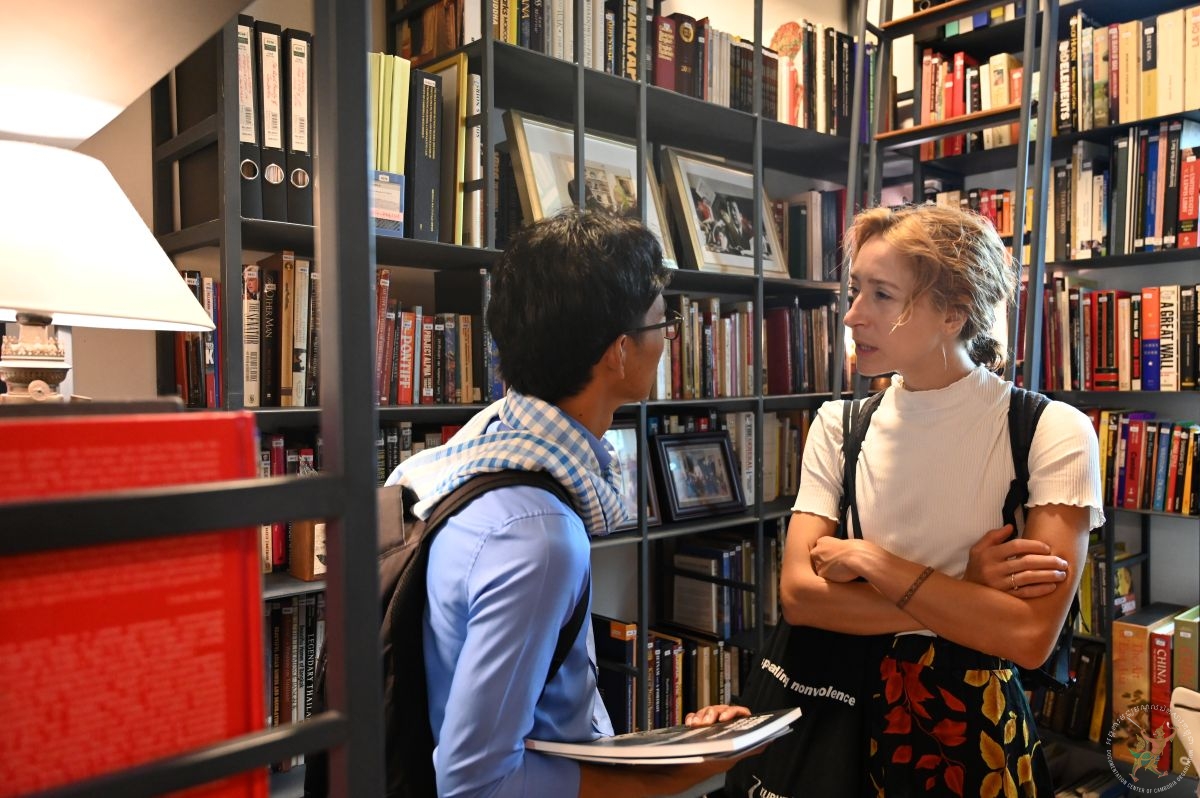
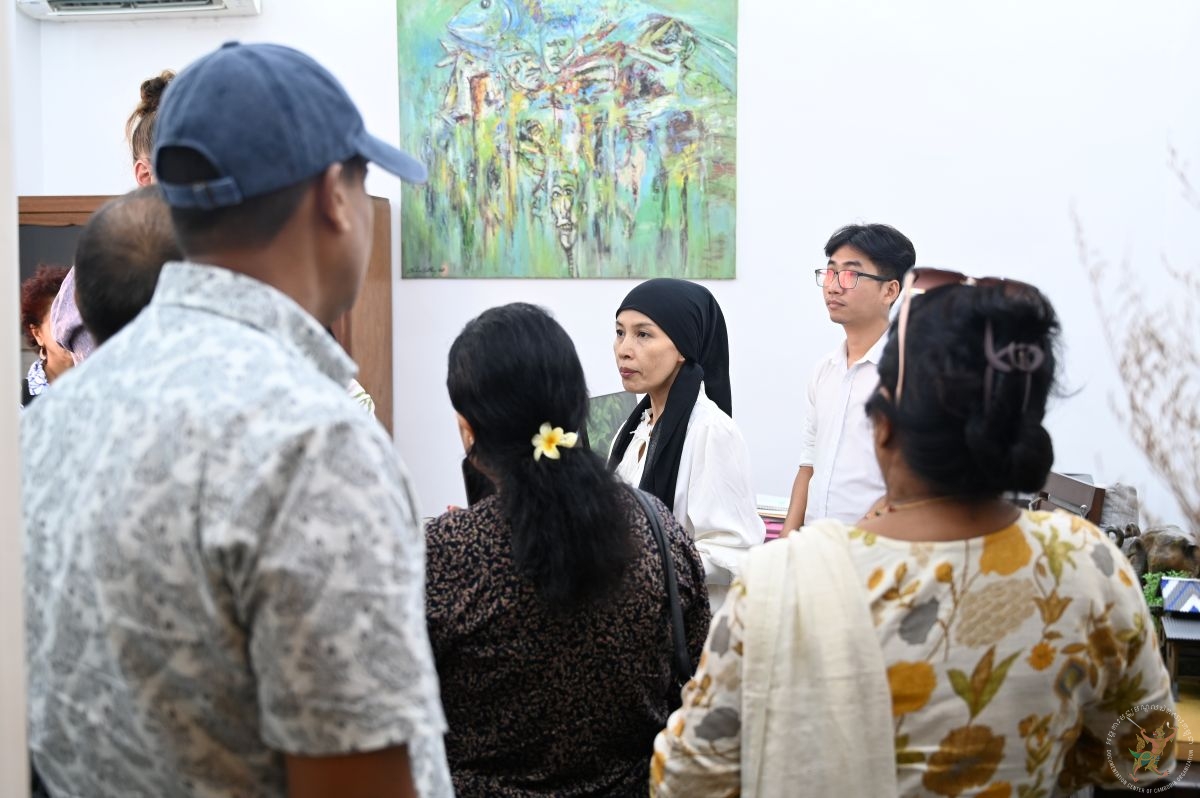
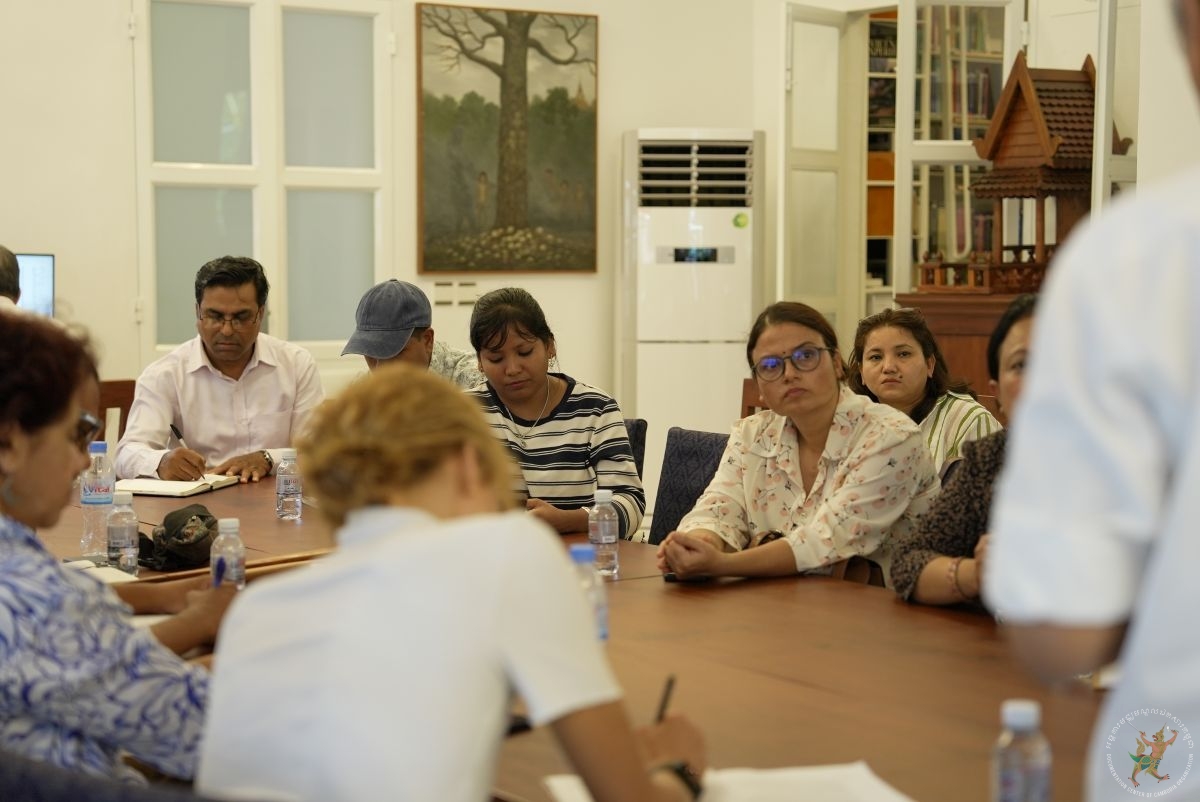
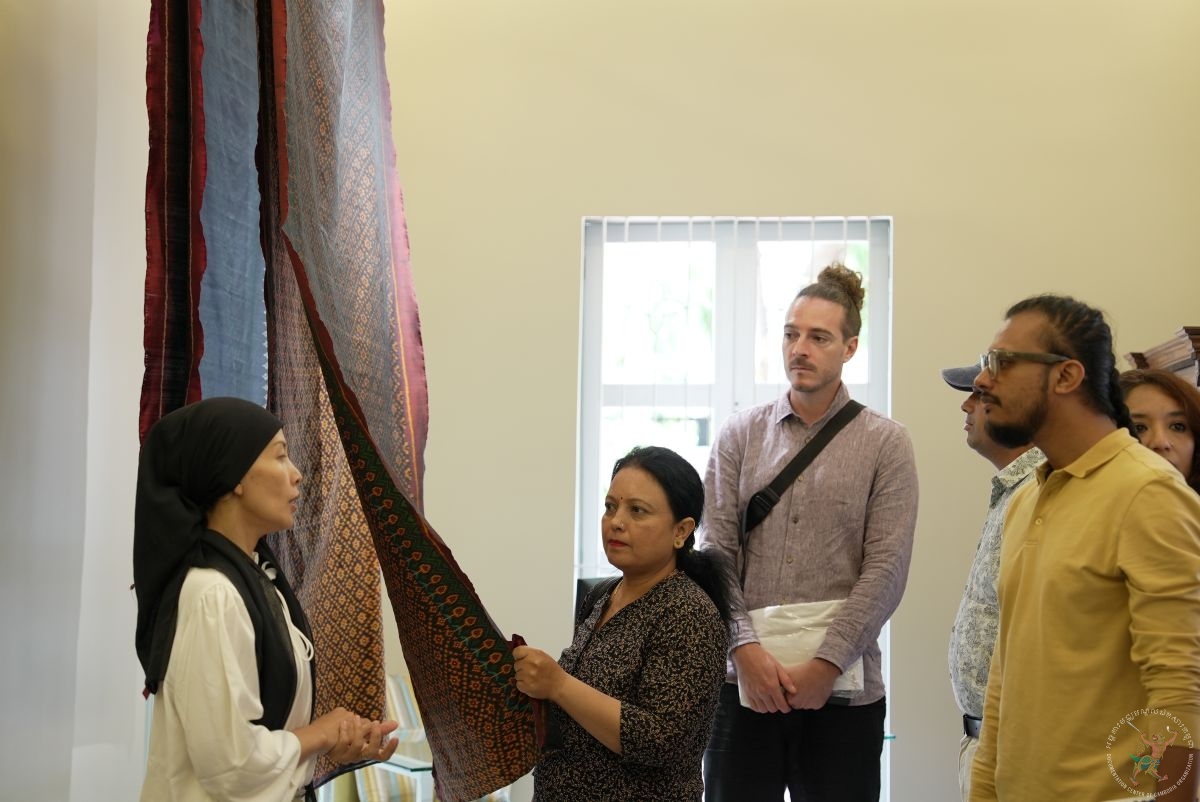
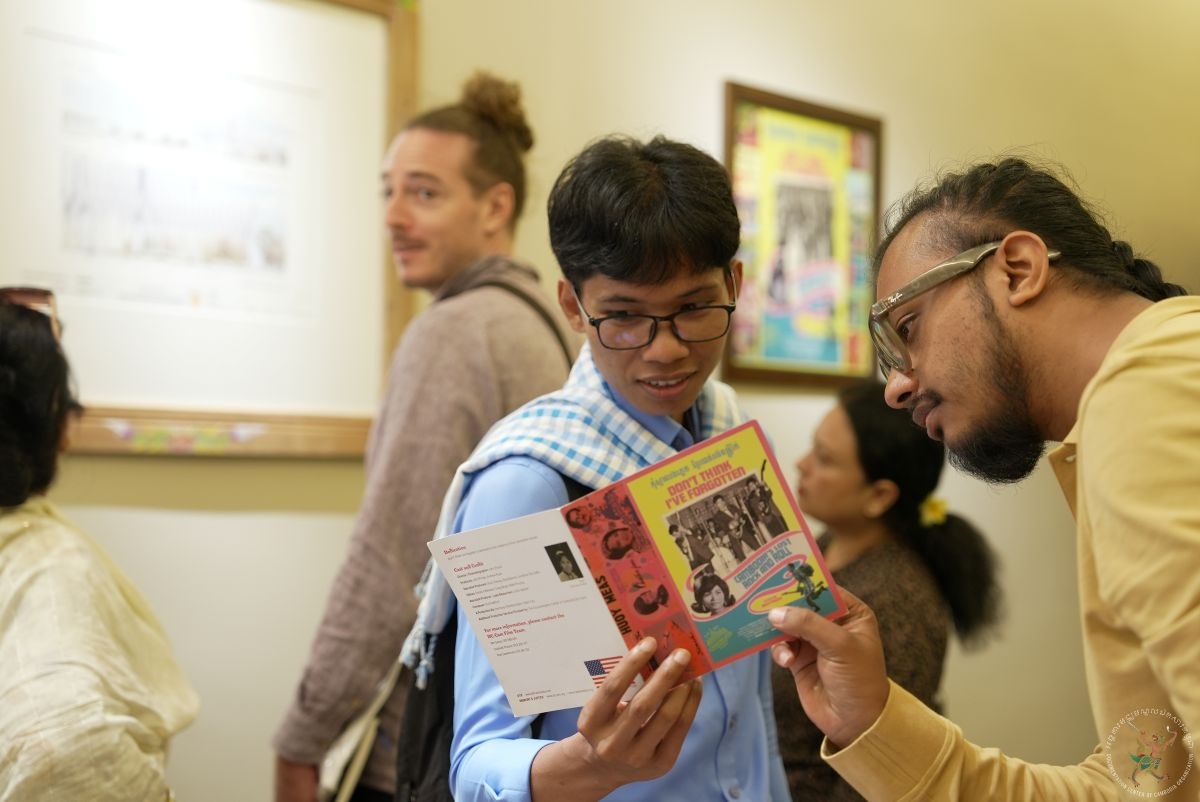
Photo: Documentation Center of Cambodia Archives


